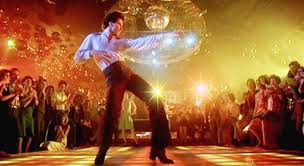Killer of Sheep
The are big
movies on the List and there are narrow movies on the List. “Killer of Sheep”
is definitely in the latter category.
Summarizing
the movie is difficult for me, partly because I had a hard time working out
what is happening and partly because I had a hard time focusing on the movie. I
felt my attention drift elsewhere and though that may be my problem more than that
of the movie, it does not change that now, having watched the movie, I cannot
describe a coherent plot through the movie. The fact that “Killer of Sheep” was
shot on gritty stock with poor sound and my copy did not have subtitles does
not help either and to my excuse, even the Wikipedia synopsis calls it “a
series of confusing episodic events”. The result is that to me, this movie is a
series of poorly connected vignettes.
What does
tie these vignettes together is that they are slices of life for a black family
in a poor neighborhood of Los Angeles. Stan (Henry G. Sanders) works at a
slaughterhouse butchering sheep, his wife (Kaycee Moore) does not seem to have
more of a life than going around at home being bored and depressed. The
children play in the dirt with the other children in the neighborhood. Money is
scarce, stuff are pilfered from anywhere, cars are put together from old parts
and crime gangs are hiring among the locals.
Does not
sound like a great place to raise children and none of the characters seem
particularly happy. They just grind on to survive because they must. The
complaints are the day-to-day complaints and not anything like a larger social
injustice cry-out. This is life as it is, accept it.
I cannot
say I was particularly excited about this movie. When my attention span is
reduced to 5-10 minutes, it is not a good sign. Yet, this is supposed to be a super
important movie. The Book gives it a double spread, an honor reserved for only
the best or most important movies and the text gushes about how special and
unique and important it is. Well, they could have fooled me. No doubt this is a
movie that talks to a demography that is either ignored or caricatured, but
rarely presented honestly and all respect for that. As I probably do not belong
to this demography (being white, male, middle-aged, middle-class and Danish) I
find it a little harder to connect and seeing these lives play out just makes
me sad.
Sad that
with a decent and honest job, these people are stuck in an environment that
will eventually grind them down, that life holds no more for them than this,
unless they embrace the shadier careers crime would offer.
Just last night
my wife and I were talking about some recent stories in the media on how it is
very hard in these post-corona times to get qualified staff in the hospitality
sector, both in Denmark and Israel, that young people simple go elsewhere and
refuse to take these jobs. That you cannot anymore offer a shit job and expect
people to take it and be happy, instead companies need to offer something more.
This is presented as a problem as if our way of life is dependent on having a
group of working poor. Watching a movie like “Killer of Sheep” convinces me
that this should not be a problem but an opportunity. Sounds awfully left-wing,
I know, but that is what a movie like “Killer of Sheep” does to me.
I find it
hard to whip up the enthusiasm this movie apparently deserves and on that basis
I cannot honestly recommend it. That does not make it unimportant, just that my
life goes on more or less the same with or without “Killer of Sheep”. The
seventies are full of social-consciousness movies that work better for me.




